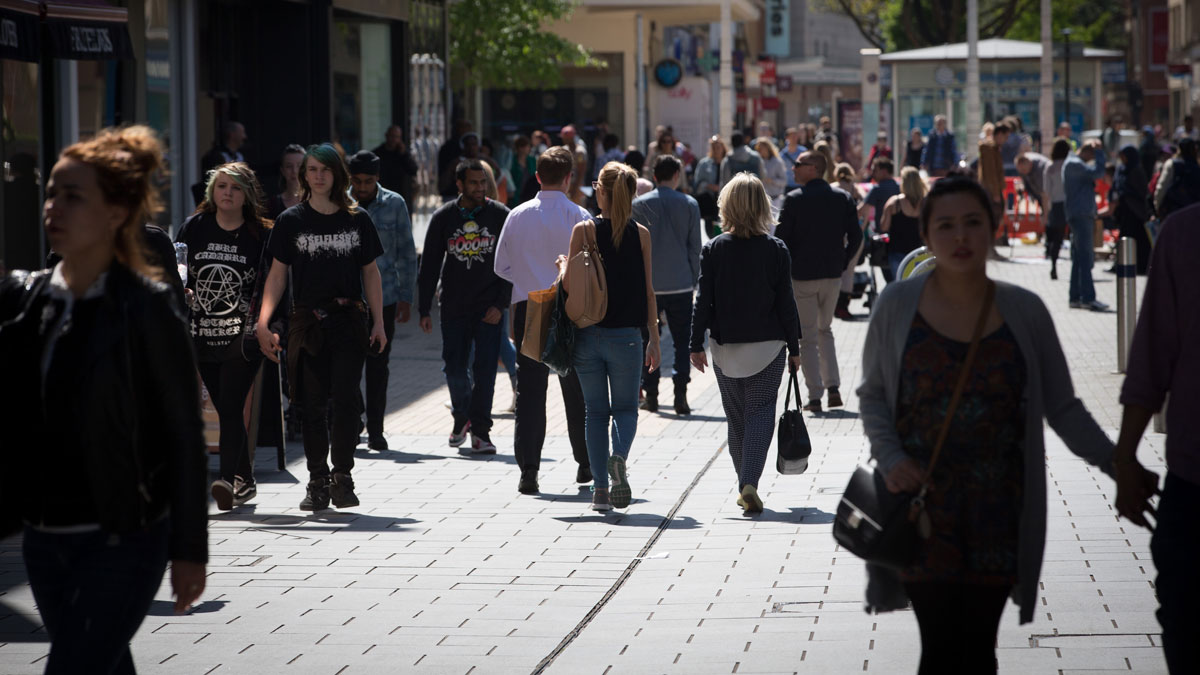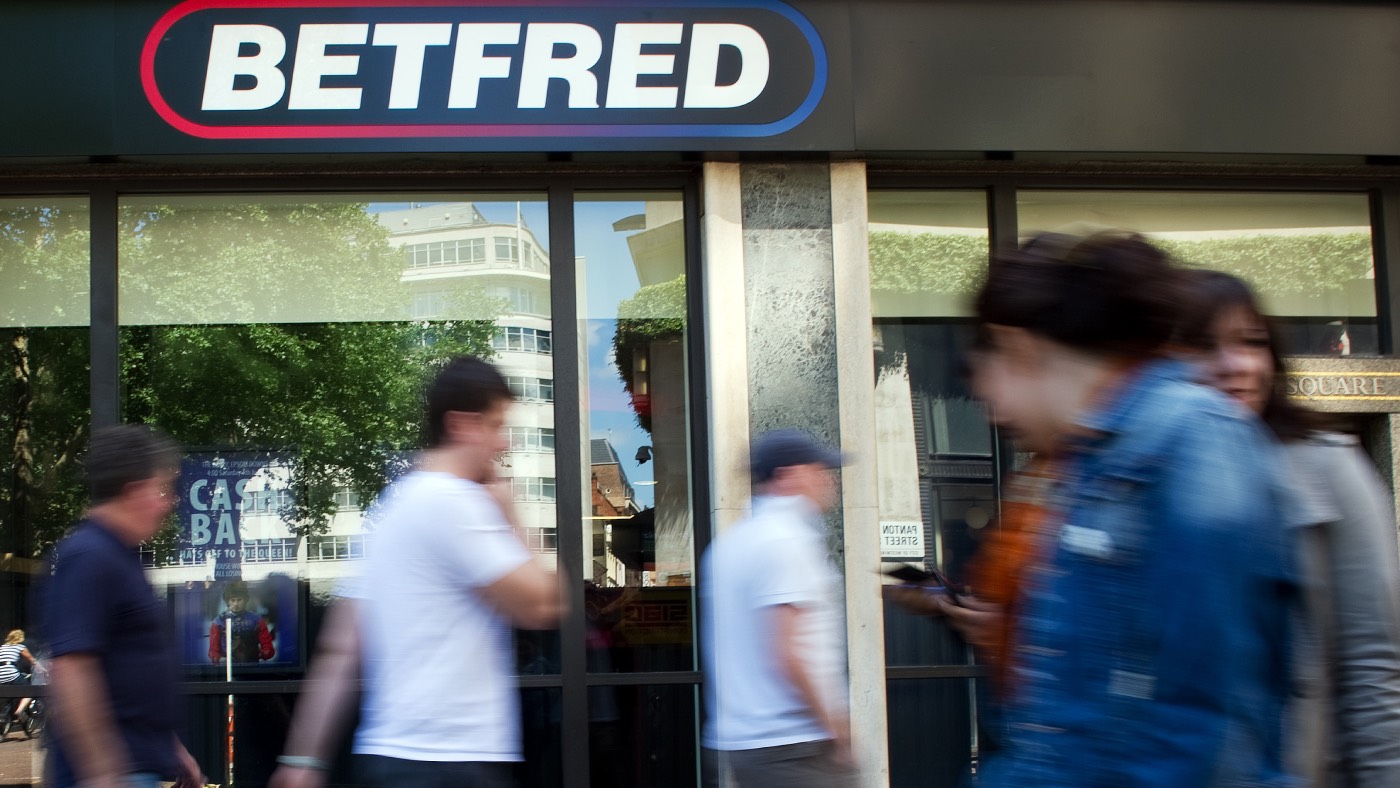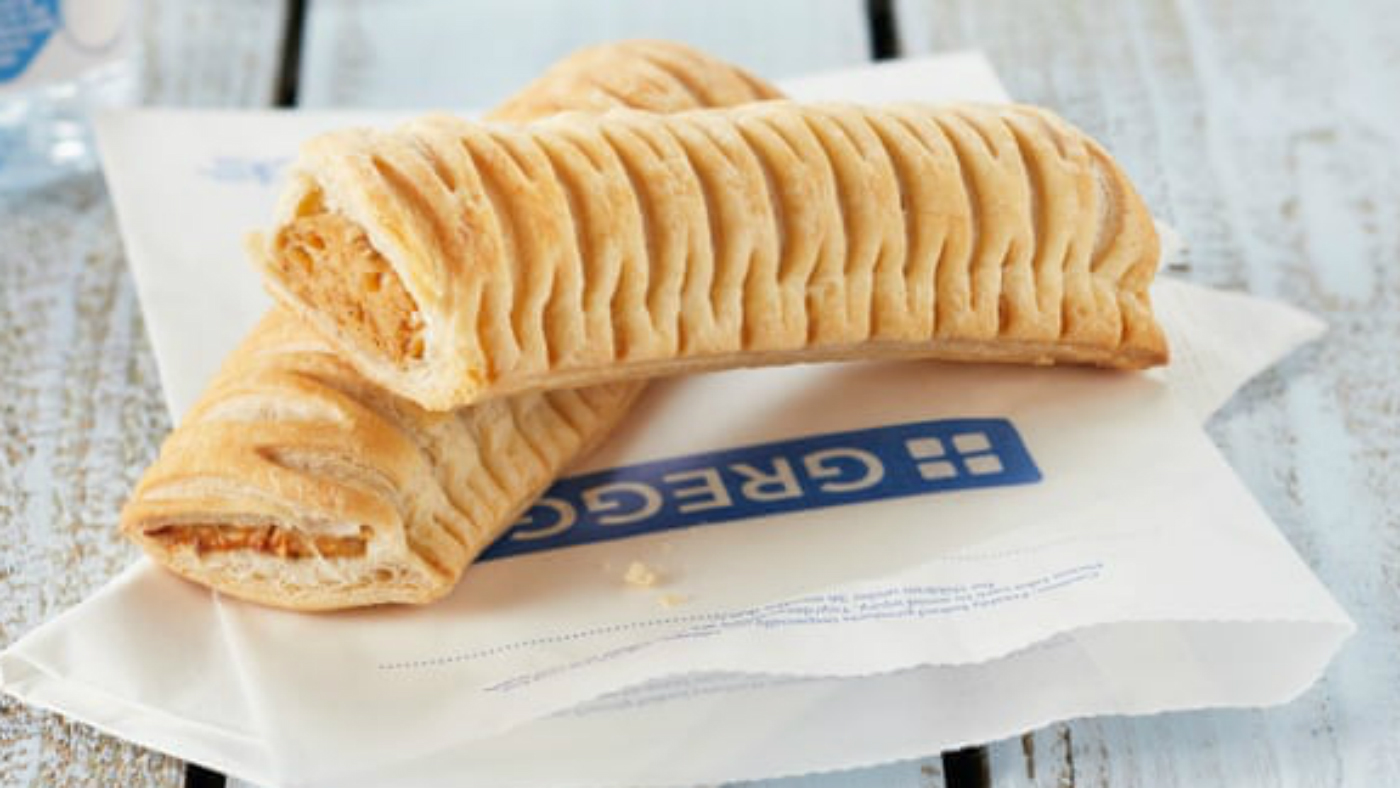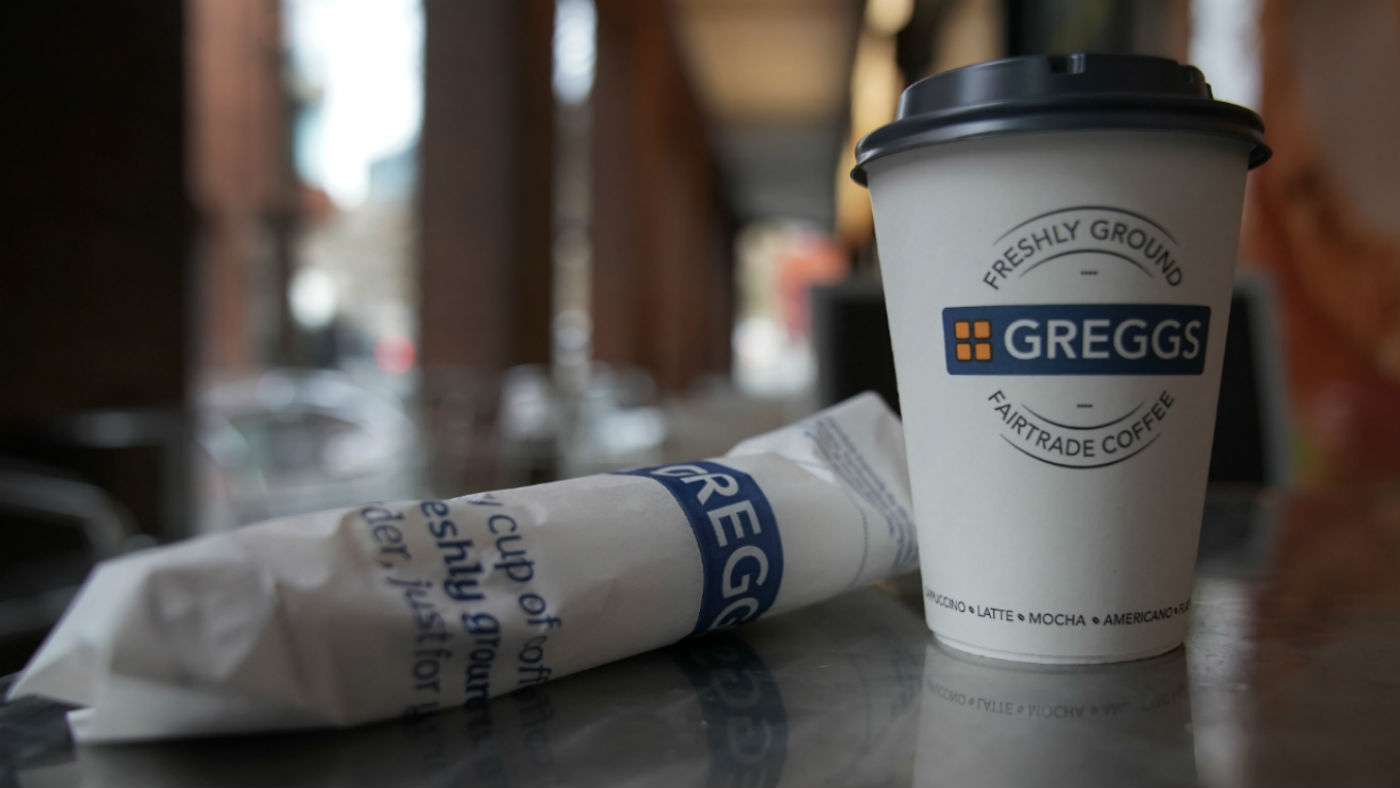The winning strategies of high street casinos
Efforts to crack down on gambling marketing may be to the advantage of slot-machine operators

A free daily email with the biggest news stories of the day – and the best features from TheWeek.com
You are now subscribed
Your newsletter sign-up was successful
Casinos are "indelibly associated with glamour" in popular culture, conjuring images of James Bond "sipping a martini", surrounded by "black-tie wearing patrons", and with a roulette wheel in the background.
But the reality of 24-hour casinos operating in the UK is "worlds away from that image", said The New European. At "slot machine farms" on UK high streets, punters are "robotically feeding banknote after banknote into mesmerising terminals", said The Observer.
'High-octane gameplay'
The casino operators are "dab hands at bringing in customers and keeping them playing". They offer free tea, coffee and snacks, which is a "small expense given how quickly the outlay comes flooding back".
The Week
Escape your echo chamber. Get the facts behind the news, plus analysis from multiple perspectives.

Sign up for The Week's Free Newsletters
From our morning news briefing to a weekly Good News Newsletter, get the best of The Week delivered directly to your inbox.
From our morning news briefing to a weekly Good News Newsletter, get the best of The Week delivered directly to your inbox.
The Observer told the story of one particular customer at a Stockport venue owned by German giant Merkur. The 64-year-old woman had worked at a bookmakers, where she had been "encouraged" to play digital roulette machines – known as fixed-odds betting terminals – on a free demonstration setting, to "stoke punters' curiosity and drum up more business".
But the "enthralling graphics" and "high-octane gameplay" set this member of staff on a path that led to a gambling addiction. She began to play with real money, even as she battled lung cancer. At Merkur's Stockport gaming venue, she once lost just under £2,000 over two days, including a session that lasted almost 12 hours.
Internal records seen by The Observer showed that staff were aware of what she was doing, and even reserved her favourite machine, to exploit her "irrational belief" that a long losing streak on one terminal would inevitably end in a jackpot soon.
Nationally, income from the £2-a-spin "B3" machines soared by 46% to reach a record £381 million in the year to the end of March 2023, according to the Gambling Commission. Between them, the two biggest players – Admiral, with 275 shops in the UK, and Merkur, with 230 – pulled in combined revenues of more than £420 million in the past 12 months.
A free daily email with the biggest news stories of the day – and the best features from TheWeek.com
In the face of Gambling Commission regulations, it appears that some firms may be "doing some gaming of their own", said The Observer. The number of £2 (category B) machines allowed in a gaming centre is limited to four times the number of their "lower-intensity £1-a-spin cousins" (category C). Bosses have found an "ingenious way around this", by stacking a rack of tablets, which technically count as machines, at the back of the shop, allowing them to "pack the rest of the floor with higher-stakes machines".
The government may loosen the rules, allowing a 50:50 ratio. The lower-stakes machines are less popular with customers, so a shift in the ratio could save the sector £20 million in energy costs alone, but the "effect on punters is much harder to predict".
'Pounds roll uphill'
Ironically, efforts to crack down on gambling marketing may be to the advantage of high street casinos. At the start of 2019, Italy banned almost all gambling marketing, but the industry said such a ban would be "ineffective" at addressing betting in settings such as shops or casinos, wrote Raffaello Rossi, a lecturer in marketing at Bristol University, and colleagues on The Conversation.
"Every pound that drops into the slot eventually rolls uphill, helping to enrich billionaire owners and fund political lobbying", said The Observer. With "millions at stake" it's "no wonder that operators are pouring some of the money they make from punters into political lobbying".
Last year, Merkur "boasted" of meeting its 65th MP, meaning it had "glad-handed" 10% of the House of Commons, including the gambling minister, Stuart Andrew.
The lobbying "now appears to be on the verge of bearing fruit", as regulations governing high street slot machines are expected to be loosened, even as ministers crack down on online gambling. The government is considering allowing gamblers to pay with contactless debit cards, making payment even easier. Now, with "one eye on a looser legal landscape", the sector's major players are "plotting aggressive expansion".
The two big players and their smaller rivals are submitting planning and licence applications across the country, often for 24-hour opening, by "pitting their vast resources against cash-strapped local authorities and the communities they serve".
Last year, more than 500 letters of objection "flooded in" against plans to turn the closed Barclays bank in Ashford, Surrey, into a "round-the-clock" gambling centre, open every day except Christmas, said Surrey Live. "Ashford is not a prosperous town and a gambling establishment will put it on a downward spiral," said one resident.
Despite objections from residents and the local MP, a north London council said it was "compelled by law" to approve an application from one of the smaller casino operators.
Merkur said the case of its Stockport customer highlighted by The Observer had been "fully investigated" and "extensive retraining [of its staff] has taken place".
Chas Newkey-Burden has been part of The Week Digital team for more than a decade and a journalist for 25 years, starting out on the irreverent football weekly 90 Minutes, before moving to lifestyle magazines Loaded and Attitude. He was a columnist for The Big Issue and landed a world exclusive with David Beckham that became the weekly magazine’s bestselling issue. He now writes regularly for The Guardian, The Telegraph, The Independent, Metro, FourFourTwo and the i new site. He is also the author of a number of non-fiction books.
-
 Local elections 2026: where are they and who is expected to win?
Local elections 2026: where are they and who is expected to win?The Explainer Labour is braced for heavy losses and U-turn on postponing some council elections hasn’t helped the party’s prospects
-
 6 of the world’s most accessible destinations
6 of the world’s most accessible destinationsThe Week Recommends Experience all of Berlin, Singapore and Sydney
-
 How the FCC’s ‘equal time’ rule works
How the FCC’s ‘equal time’ rule worksIn the Spotlight The law is at the heart of the Colbert-CBS conflict
-
 Timpson warns some retail chains won't survive lockdown
Timpson warns some retail chains won't survive lockdownSpeed Read Key-cutting boss says the high street will be ‘somewhat different’ after coronavirus
-
 Will John Lewis close some stores permanently?
Will John Lewis close some stores permanently?In Depth Sources suggest not all of the chain’s department stores will reopen after coronavirus lockdown is lifted
-
 Carluccio’s and BrightHouse collapse as coronavirus bites
Carluccio’s and BrightHouse collapse as coronavirus bitesSpeed Read Outbreak the ‘final nail in the coffin’ for both brands
-
 How Betfred makes millions treating gambling addicts
How Betfred makes millions treating gambling addictsSpeed Read Company owners also run firm that provides treatment for those hooked on betting
-
 Rolling in it: Greggs giving £7m in bonuses following vegan sausage success
Rolling in it: Greggs giving £7m in bonuses following vegan sausage successSpeed Read Bakery chain staff rewarded as meat-free pastry sales pad out profits
-
 Hopes of happy Christmas rise as sales stop falling on high street
Hopes of happy Christmas rise as sales stop falling on high streetSpeed Read CBI data reports an end to six months of falling sales
-
 How Greggs is bucking the high street gloom
How Greggs is bucking the high street gloomSpeed Read Vegan sausage roll and demand for affordable food boosts chain
-
 What is driving the collapse of high street shops?
What is driving the collapse of high street shops?In Depth An average of 16 shops closed each day in the first half of 2019